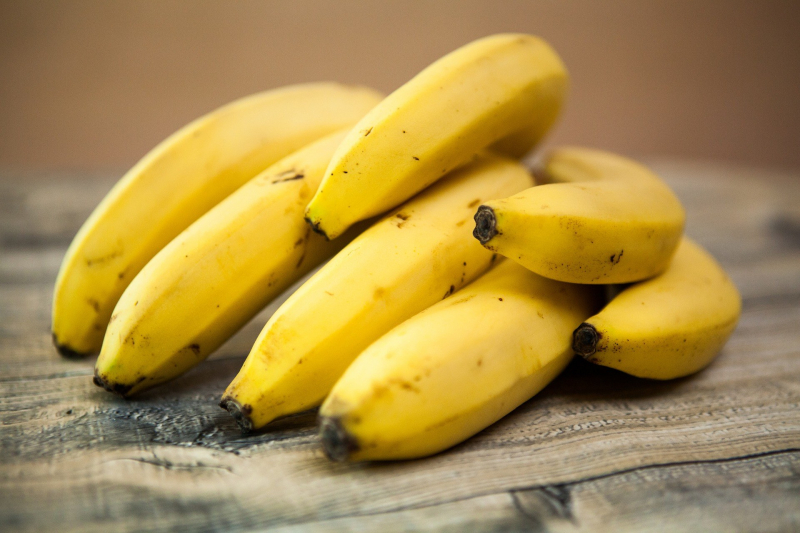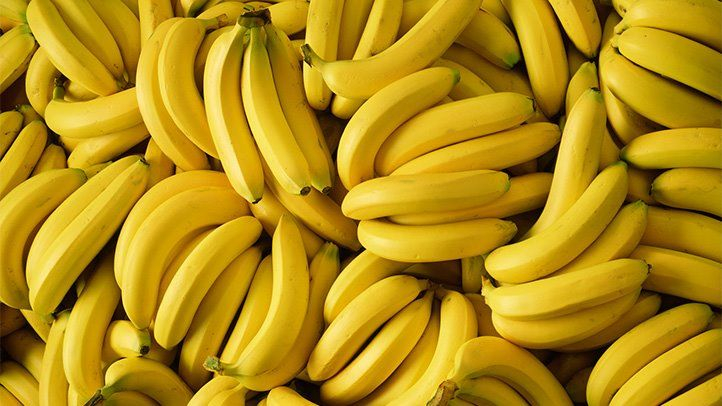Banana
A banana is an elongated, edible fruit – botanically a berry – produced by several kinds of large herbaceous flowering plants in the genus Musa. In some countries, bananas used for cooking may be called "plantains", distinguishing them from dessert bananas. The fruit is variable in size, color, and firmness, but is usually elongated and curved, with soft flesh rich in starch covered with a rind, which may be green, yellow, red, purple, or brown when ripe. The fruits grow upward in clusters near the top of the plant. Almost all modern edible seedless (parthenocarp) bananas come from two wild species – Musa acuminata and Musa balbisiana.
Out of the 1,000 varieties of bananas known to exist, the yellow Cavendish, the smaller apple banana, the baby banana, the red banana with pinkish flesh, and the plantain, which needs to be cooked, are the ones that are most frequently sold. Bananas are abundant in essential amino acids, and significant levels of carbohydrate and fiber, but low in protein and fat. They are also high in potassium and vitamins B6 and C.












